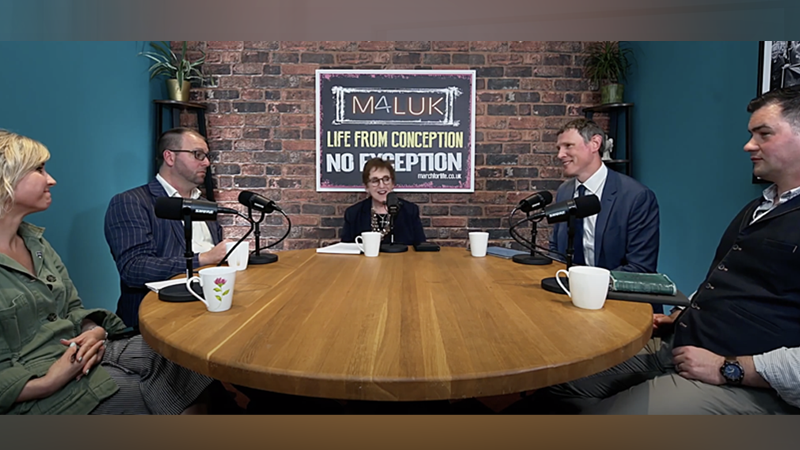Bringing God back into the abortion debate

COMMENT
Is there a place for God in the volatile debate surrounding abortion and ‘reproductive rights’?
That was the question I was asked to discuss on the March for Life UK roundtable LifeStream22 chaired by Lynda Rose of Voice for Justice, alongside Dawn McAvoy of Both Lives Matter, lawyer Michael Philips of Christian Legal Centre, and Regan King, pastor at the Angel Church in Islington, north London.
During the discussion, a number of important points were raised, not least that we should recognise that abortion is a great moral evil which Christians should oppose publicly as well as privately.
Scriptural motivation
Some may claim the Bible has nothing to say on the subject. On the contrary, it is abundantly clear.
In Genesis 1 we are told that humans are made “in the image of God”, so we know that human life is intrinsically valuable. Psalm 139:13-14 states “For you created my inmost being; you knit me together in my mother’s womb. I praise you because I am fearfully and wonderfully made; your works are wonderful, I know that full well,” while Jeremiah 1:5 says “Before I formed you in the womb I knew you, before you were born I set you apart”.
These verses demonstrate that God knows us, loves us, and bestows life upon us from conception. To deliberately end a human life in the womb is murder, an act the Bible condemns repeatedly. The Church needs to be confident in declaring these truths. They are not man’s opinion, they are God’s Word; his inspired, sufficient, inerrant and infallible Word.you knit me together in my mother’s womb
But while we as Christians know this, and are motivated by these verses to speak out against abortion, communicating in this way is not the only, or perhaps always the best way to reach the hearts and minds of unbelievers. Because while many reject God or say they do not recognise him, we are not talking to a world that is without God. He has given all a conscience, and so when we speak the truth to unbelievers, we can do so in a gentle way, knowing their consciences may do more of the work on our behalf.
Instead, we can use good arguments without necessarily referencing the Bible. Like Paul in Athens (Acts 17: 16-34), we can build common ground with people and speak to them in terms that they understand, being respectful and courteous, while also guiding them towards the truth.you knit me together in my mother’s womb
One particular area where we are able to speak to the world in a language it understands is on the issue of equality.
While Parliament has resisted introducing an explicit ban on sex-selective abortion, ask a person on the street if they think you should be able to have an abortion because you don’t want to have a baby girl and you will more than likely be met with a resounding ‘No!’ Attitudes towards people with disabilities have changed markedly for the better in the past decade or so. People are increasingly uncomfortable with the idea that a baby thought to have a disability in the womb may be aborted at full-term, whereas for a child without the limit is 24 weeks’ gestation.
In God’s common grace, arguments we can use to highlight these areas of discrimination may serve to change hearts and minds in a way that quoting Scripture at someone would not.
Battle for hearts and minds
In such a controversial debate, much can hinge on the language being used.
Women are told it is their right to do what they wish with their body. The unborn baby may be presented as a problem: an obstacle to success; a financial drain; or a weighty chain tethering them to a life without choices and preventing them from experiencing freedom. Mother and child are pitted against one another.
But it simply isn’t the case that one must lose for the other to gain. There can be mutual flourishing, with the child experiencing life and all that it has to offer, while the mother receives the joy and love of a baby. Yes, caring for a child is challenging, but it is rewarding beyond measure. This is something imprinted upon our hearts – a characteristic of God mirrored in ourselves. God loves each of us like children.
The Bible says all have sinned and fall short of the glory of God. We are not how he intended us to be. And yet he still loves us enough to send the Lord Jesus Christ to Calvary; that through him we may find forgiveness for sin. “But God demonstrates his own love for us in this: While we were still sinners, Christ died for us.” (Romans 5:8)
Everything we know of God and his nature speaks to a deep care for his children. And even if his name or his Word are not mentioned in the abortion debate, he is very much still at the centre of it. He is the one who drives us to defend the life which he has made so precious.

By Ciarán Kelly, Director